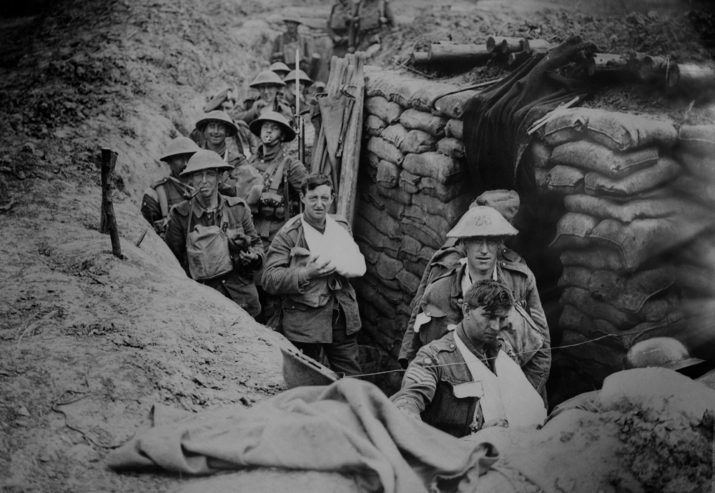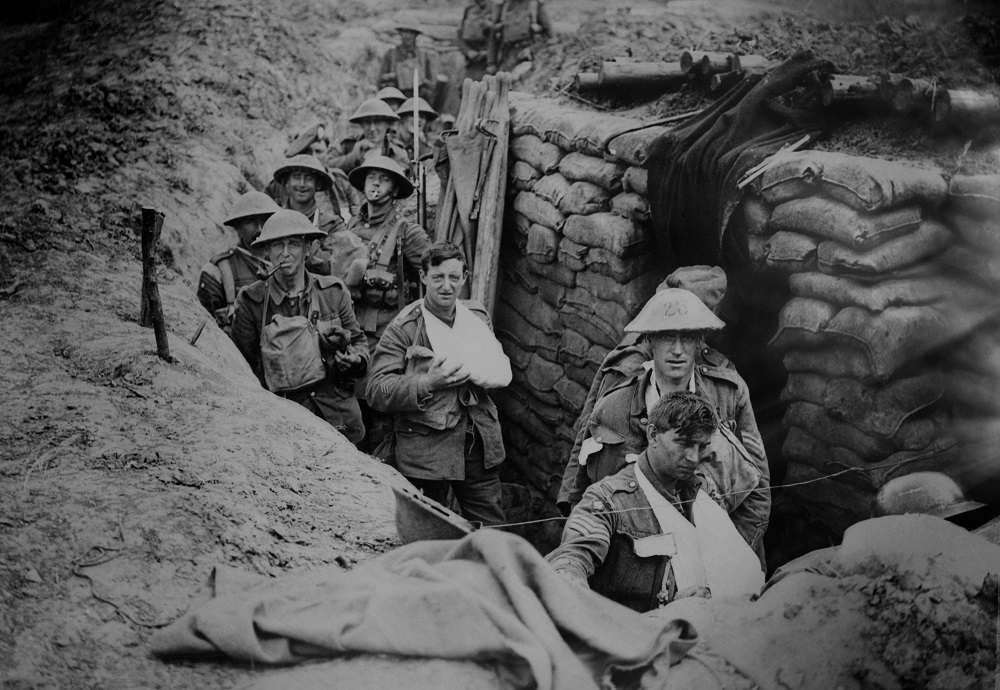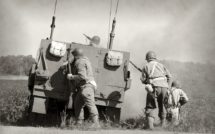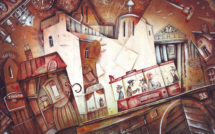

Dr. Dale Urie, Senior Lecturer, University of Kansas Humanities Program, teaches a First-Year Seminar entitled How World War I Changed the World:
World War I, which began 100 years ago, is largely responsible for shaping the way we understand ourselves and creating the world we inhabit. The Great War accelerated changes in technology, transportation, art, fashion, food, science, religion, gender and social relations, leisure, and other aspects of everyday life in Europe and the United States. From Downton Abbey (PBS) to War Horse (Spielberg), even today, we find it necessary to make sense of this catastrophic event in modern history. This course will try to do just that.
First-Year Seminars, discussion-based courses limited to 19 students, are “designed to introduce freshmen to the excitement of intellectual discovery at KU.” Dr. Urie first offered her course, which is cross-listed with the Humanities and European Studies programs, in fall 2014; she has taught the popular seminar each fall since. She wanted to give first-year students an opportunity to participate in the KU WWI Centennial Commemoration. Participants in her class belong to a Learning Community and therefore enroll in a second linked course, “Introduction to Gender Studies.” This interdisciplinary approach helps students explore how the war challenged gender roles and redefined both femininity and masculinity. Students in How World War I Changed the World acquire a solid understanding of the global implications of the war and the ways it impacted modernity. The course also examines how the Peace of Paris laid the foundation for challenges facing the Middle East and for American and European involvement in the region today.
While learning about the war from multiple perspectives, students are introduced to many resources available at the University of Kansas. The class visits the Spencer Museum of Art, which houses one of the richest collections in the country of graphic art produced during World War I. Students examine primary source materials in the Kansas Collection and the University Archives, located in the Kenneth Spencer Research Library, to learn how the war impacted the University and its students, faculty, and staff. They also learn about campus memorials such as Memorial Stadium, built after the conflict to honor the students and alumni who died during the war. While working on their research projects, students meet with a research librarian in KU Libraries to learn about available primary and secondary sources; Jon Giullian, Associate Librarian and Head, International and Area Studies, created a subject guide for World War I that helps students get started on their research. Dr. Urie also invites faculty from other departments to share their expertise with her students, and she organizes discussions with noted scholars who are visiting KU as part of the WWI Centennial Commemoration.
According to colleagues who observed or met with the First-Year Seminar, the course evidences a high level of intellectual content, engaging teaching practices, and close attention to student learning. Dr. Urie helps her students understand how the peace treaty negotiated at the end of the Great War continues to shape developments in the Middle East today, for example, by assigning chapters in Paris 1919: Six Months that Changed the World, an award-winning study by eminent British historian Margaret MacMillan. First-year students are enthusiastic about the seminar; last semester’s group wished course content extended through the end of World War II.
Savannah Pine, a senior earning a major in History, a co-major in European Studies, and a minor in English, serves as the peer mentor for How World War I Changed the World. A member of the University Honors Program, Savannah is writing a senior thesis this spring for honors in European Studies . She has earned the Undergraduate Certificate in Research Experience. Savannah is also the founding Editor-in-Chief of the Undergraduate Research Journal for the Humanities, the second issue of which appears in early May.
Dale Urie received her Ph.D. in Modern European History from the University of North Texas. Her current research focuses on issues surrounding the growing Muslim population in Europe. Her publications center on the life of English author Rebecca West and her exploration of events and ideas that shaped the twentieth century. After teaching on the faculties of Northeastern University and the Art Institute of Boston, as well as at the Anglo-American College in Prague, Czech Republic, Dr. Urie joined the Humanities Program at the University of Kansas in 2000. She also teaches in the European Studies Program. Dr. Urie received a faculty Fulbright Fellowship in 2012 from the German Fulbright Commission to study the effect of Muslim immigration on the question of national identity in Germany. She was named a KU Woman of Distinction for 2015-16 and has received numerous teaching awards.
This article is part of our special feature Memory and the Politics of the Past: New Research and Innovation.
Photo: Bandaged British World War I soldiers in a battlefield trench, 1915-1918, Everett Historical | Shutterstock
Published on April 4, 2017.




